Nonaka und Takeuchi – zwei japanische Betriebswirtschaftler – gelten als die Begründer eines der erfolgreichsten theoretischen Modelle zum Wissensmanagement – der Wissensspirale oder des SEKI- Modells ( SEKI = Sozialisation, Externalisation, Kombination und Internalisation. Nonaka, Ikujiro / Takeuchi, Hirotaka: The Knowledge Creating Company. How Japanese companies create the dynamics of innovation. New York: Oxford Press 1995).
Sie haben in mehreren Untersuchungen fünf Faktoren herausgearbeitet, die gute Rahmenbedingungen für Wissensmanagement im Unternehmen schaffen und / oder über die ein eben solches kontinuierlich ausgebaut werden. Diese Rahmenbedingungen sind nach Nonaka und Takeuchi die Unternehmenseigenschaften Intention, Autonomie, Fluktuation / kreatives Chaos, Redundanz sowie Interne Vielfalt.
Autonomie und Interne Vielfalt spielen in meinem Forschungsdesign eine sehr entscheidende Rolle, für Finnlands Öffentliche Bibliotheken kann aber in dieser kurzen Summary (die nicht das Ergebnis einer Analyse der Interviews ist, sondern mehr eine subjektive Zusammenstellung meiner Eindrücke) bereits konstatiert werden, dass durch die nationale Strategie und durch das finnische Bibliotheksgesetz die Intention, auf der die Bibliothek aufgebaut ist, stark ist:
[…] The most critical element of corporate strategy is to conceptualize a vision about what kind of knowledge should be developed and to operationalize it into a management system for implementation. […]
If not for intention, it would be impossible to judge the information or knowledge perceived or created. At an organizational level, intention is often expressed by organizational standards or visions that can be used to evaluate and justify the created value.
It is necessarily value-laden. […]
Nonaka / Takeuchi (1995), S. 74 f.
Im finnischen Bibliotheksgesetz, § 1, 2 – das speziell auf Öffentliche Bibliotheken zielt und im Herbst ergänzt und upgedatet wird (die Vorarbeiten sind getan) – heisst es:
1. The objective of the library and information services provided by public libraries shall be to promote equal opportunities for citizens to pursue personal cultivation, literary and cultural interests, continuous development of knowledge, personal skills and civic skills, internationalization, and lifelong learning.
2. Library activities shall also aim at promoting the development of virtual and interactive network services and their educational and cultural contents.
Library for Citizen – das neue Strategiepier der finnischen Öffentlichen Bibliotheken (ich habe davon berichtet) greift das auf: fünf ‚Core-Values‘ werden aufgelistet und um Ziele und Massnahmen ergänzt – Equality, Responsibility, Sense of community, Courage und Freedom of speech.
Die starke Vernetzung und das ‚Getragen sein‘ von gemeinsamen Werten war durchweg in allen Gesprächen zu spüren – und ich finde, dass geben auch die Zitate der KollegInnen wieder, mit denen ich gesprochen habe und die ich hier noch einmal als ‚gesammelte Eindrücke‘ in der Reihung der Interviews wiedergeben möchte:
Our priorities as a library are safety and freedom of information, and therefore we have to closely involve our citizens. One example of our citizen involvement are our successful language cafés: these are low-threshold events that are easy to organize through volunteers, are inclusive and of increasing importance.
Successful knowledge management depends on atmosphere and discussion culture. Incorporating the staff’s skills, continued monitoring and quick reaction times are therefore essential. And we still have lessons to learn.
Tuula Haavisto
Helsinki Kirjastotoimen johtaja | Library Director
Marja-Liisa Komulainen
Head of Development Unit, Helsinki
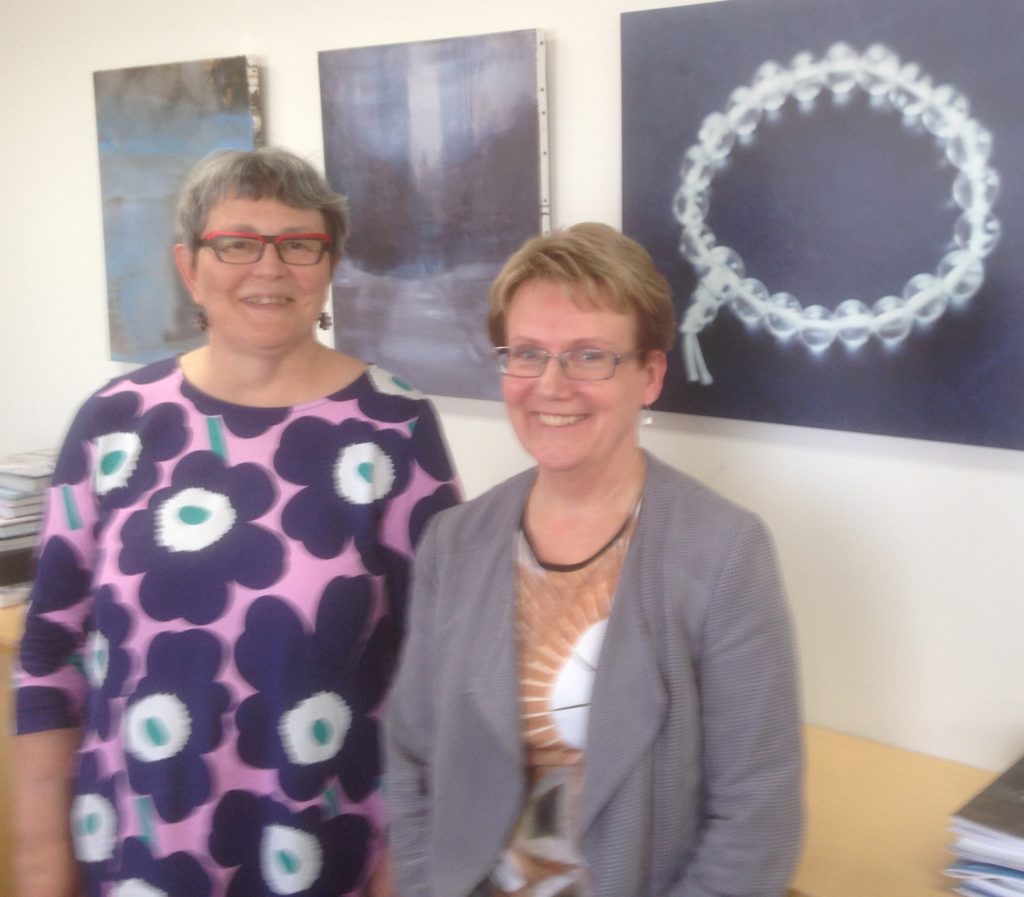
We as a library are always trying to be fun!
Mikko Vianio
Director of Library Services, City of Vantaa
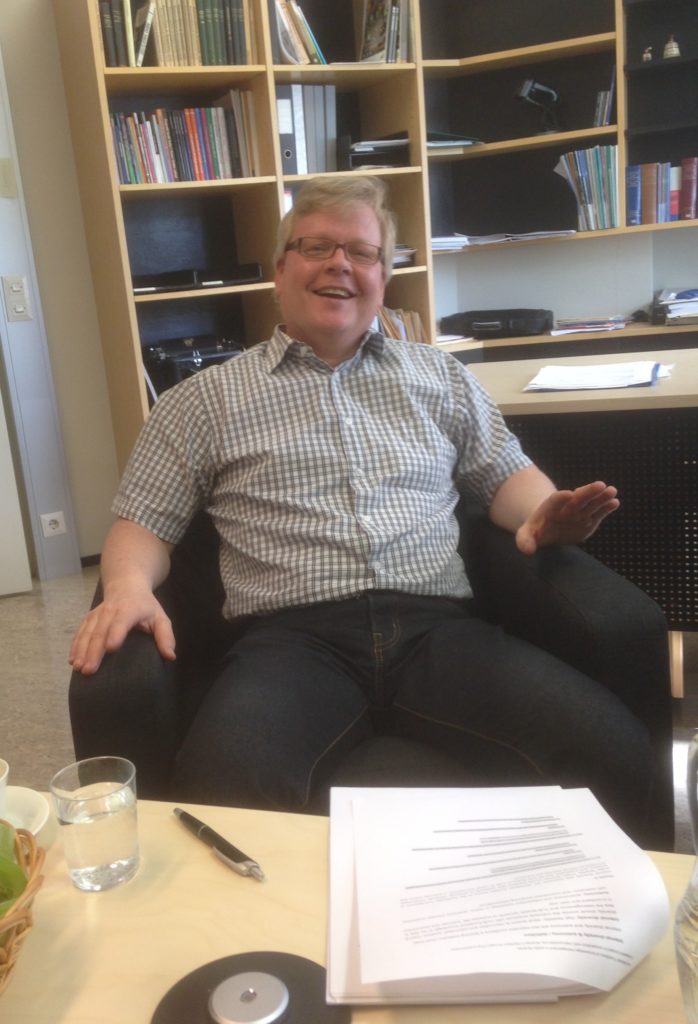
We always have to say YES!
Oili Sivula, District Manager of Library Services
Espoo | Leppävaara district
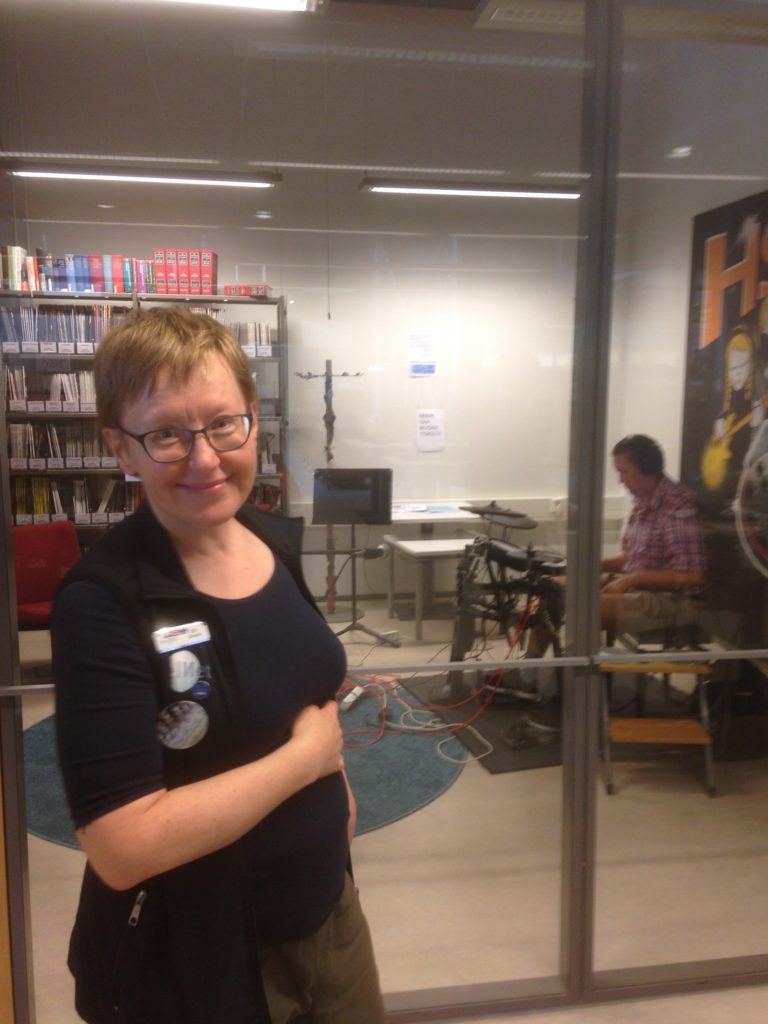
Libraries are open and free, that is our main task. And improving citizenship is a very important focus in our everyday work.
Pirkko Lindberg
Tampere | Head of Metso

Finish society is in a transition from national to international with a lot of legal changes, which stimulates our day-to-day in making things simpler, more effizient and better.
Aart de Heer
library services director – Turun kaupunginkirjasto
Åbo stadsbibliotek | Turku City Library
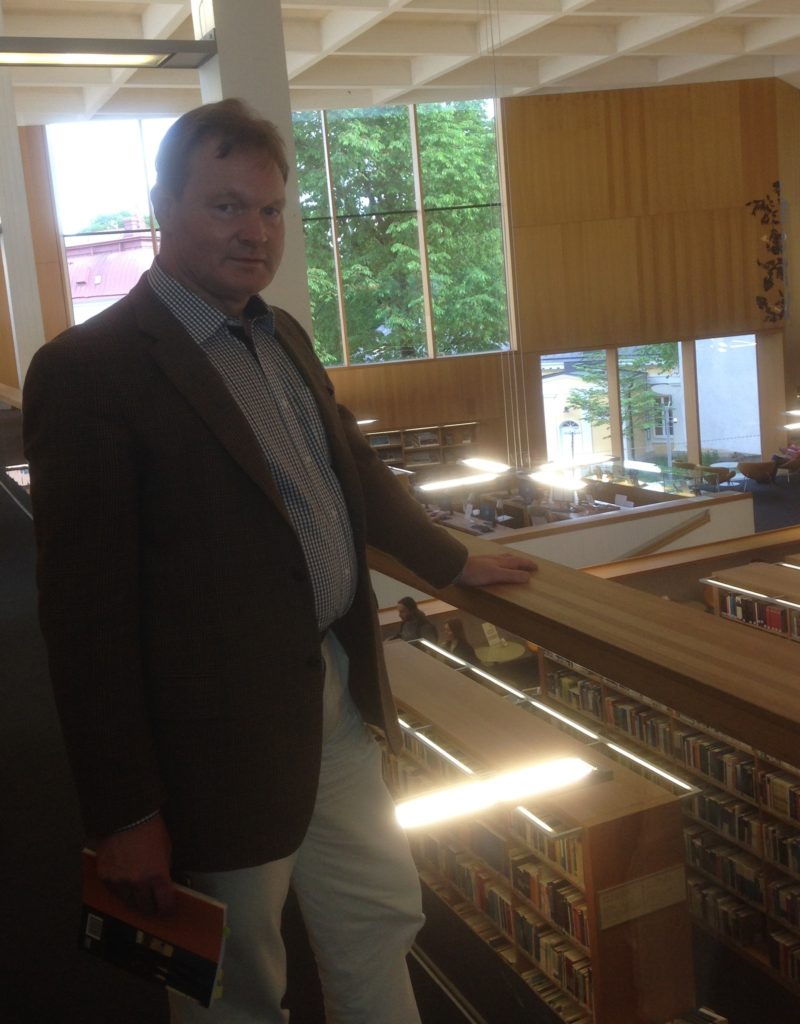
Let Them Fly:
We have to use the skills of our well educated staff and have to give them more responsibilities as well – just let them fly!
Hanna Martikainen
Library Director
Jyväskylä City Library – Regional Library of Central Finland
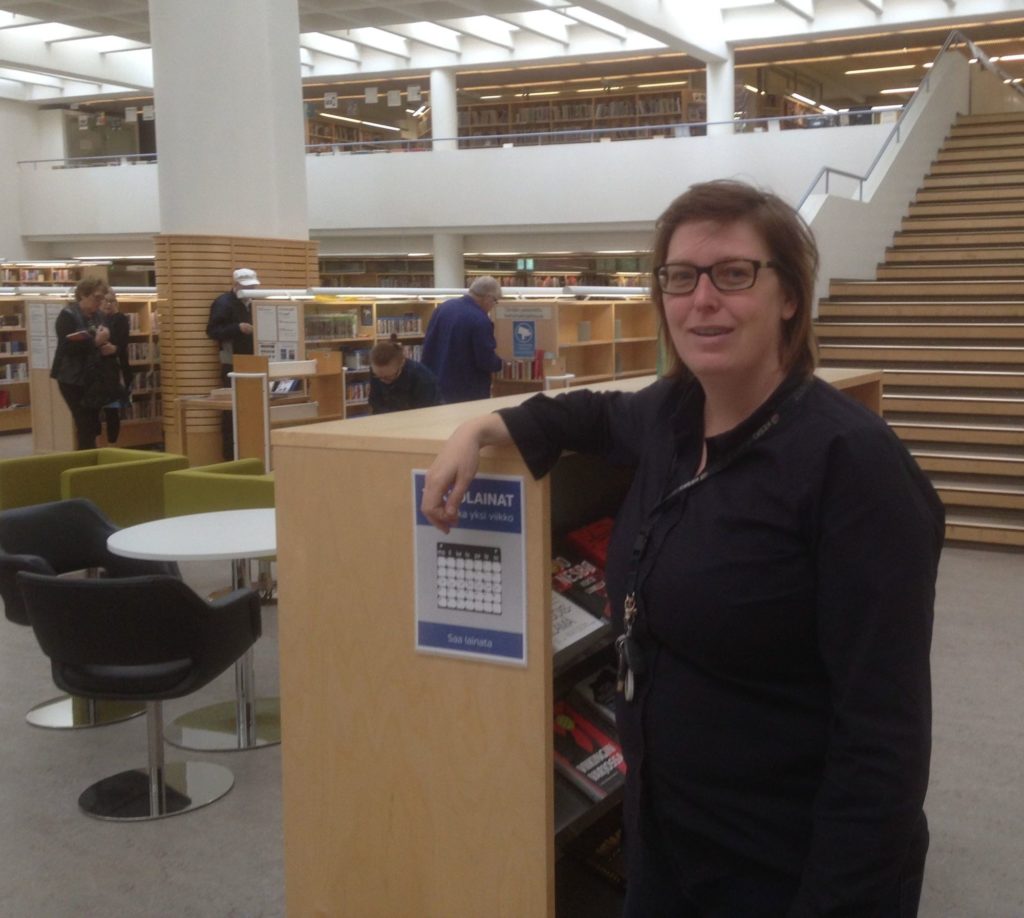
Our duty is to offer know-how to every citizen, to give them individual guidance, and that’s the highest step in our Knowledge Management. And leadership is the way of implementing Knowledge Management – whether it is via social software or other factors doesn’t matter so much!
Päivi Savinainen
Direktorin Kuopio| kirjastotoimenjohtaja
Kuopion kaupunginkirjasto

We are moving from system centered towards human centered service, and doing so we are bringing the collection to life with new features, new content and with new partners to create experiences and adventures for customers to share.
Jouni Pääkkölä
Director of Library Services Oulu
It’s not the core idea of libraries to market things – that is the library as an idea of sharing experiences and services.
So we must think about the peoples democratic needs first, we can take of the other tasks later!
Päivi Rasinkangas
District Manager of Library Services, Oulu

Der Untertitel des finnischen Strategiepapiers ist nicht zu Unrecht ‚An essential part of Finish know-how‘ – die finnischen Öffentlichen Bibliotheken sind sich ihrer gesellschaftspolitischen Funktion stolz bewusst, und aus den Gesprächen wird mir hier im Rückblick klar, dass ich, dass vielleicht wir deutschen BibliothekarInnen hier viel zu zögerlich diese Funktionen bewusst einnehmen und vermarkten.
Aber das soll hier nicht Thema sein, abschliessend möchte ich auf zwei Besonderheiten hinweissen, die ich aus Finnland mitgenommen habe:
- In vielen Bibliotheken ist es verpflichtend (auch für das Management), nach einer bestimmten Zeit (vier bis fünf Jahren) den Job zu wechseln und in eine andere Bibliothek oder eine andere Einheit zu wechseln. Zudem gibt es in manchen eine verpflichtende interne oder externe Hospitant von ca zwei bis vier Arbeitswochen pro Jahr, die in einer anderen Abteilung, einer anderen städtischen Institution oder auch in einer anderen Stadt abgeleistet werden müssen (shadowing-programms).
Das sollten deutsche Bibliotheken übernehmen – ist doch weder so teuer noch so aufwendig in der Organisation und vermeidet es blinde Flecke, Besitzstandswahrung und Unflexibilität. - Die zunehmenden Aktivitäten im Kontext der Geflüchteten haben finnische Bibliotheken nicht überrascht – im großen und ganzen hat man hier schon immer viel gemacht, es wurden kaum neue Aktivitäten entwickelt sondern Bestehendes ausgebaut – v.a. die Language-Cafes mit zahlreichen Freiwilligen sind (nicht nur in Finnland) ein großer Erfolg.
Bleibt mir abschliessend noch einmal auf die Vision der neuen Zentralbibliothek hinzuweisen – das u.a. mit Hilfe von Bürgerpartozipation erstellte Leitbild, bzw. das Mission Statement, dass ich von Kari Lämsä aus Library10 erläutert bekommen habe:
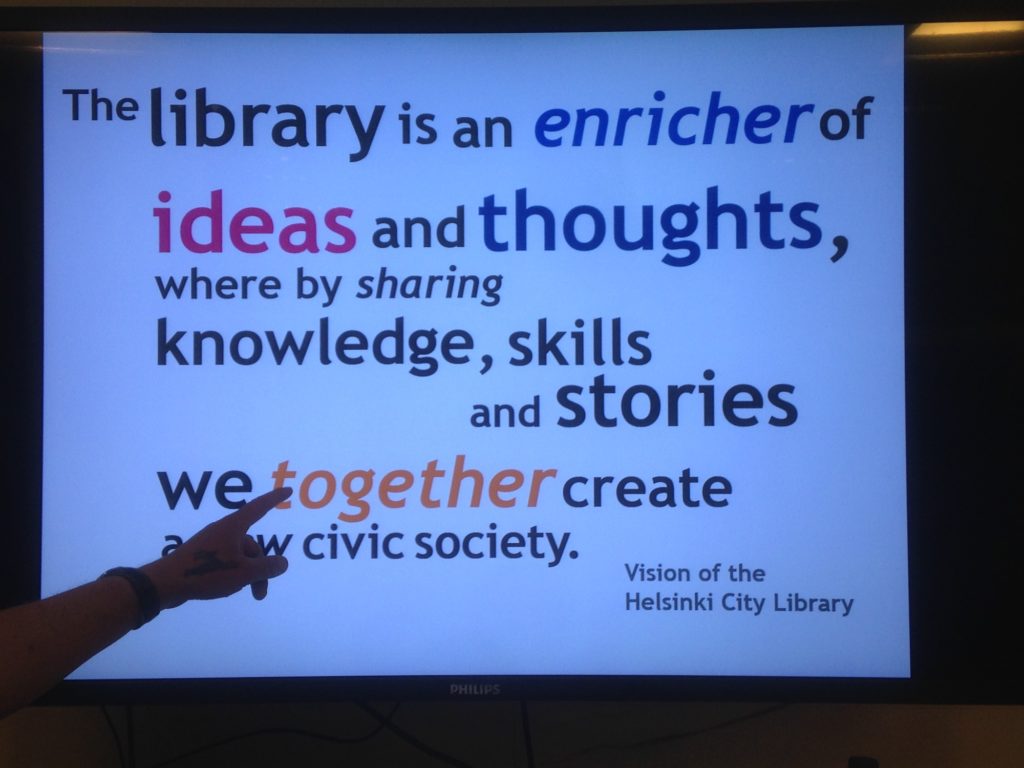
c: Kari Lämsä
